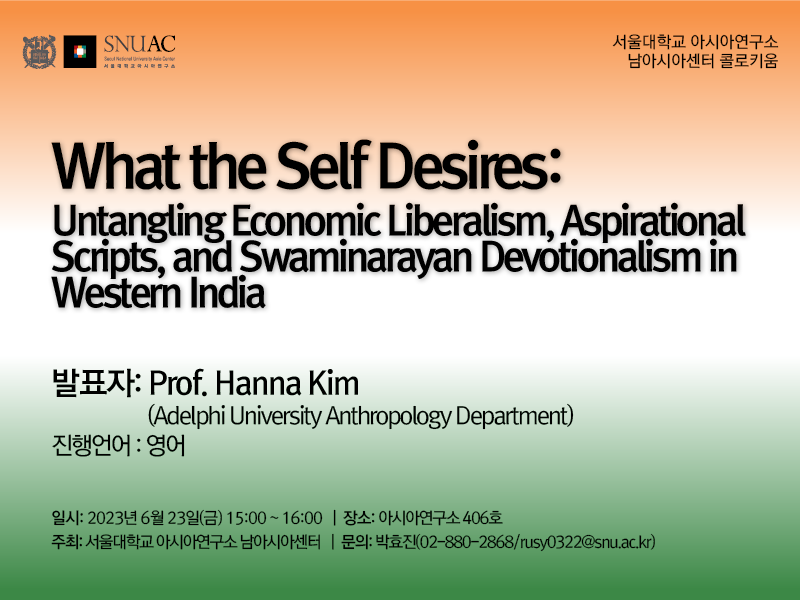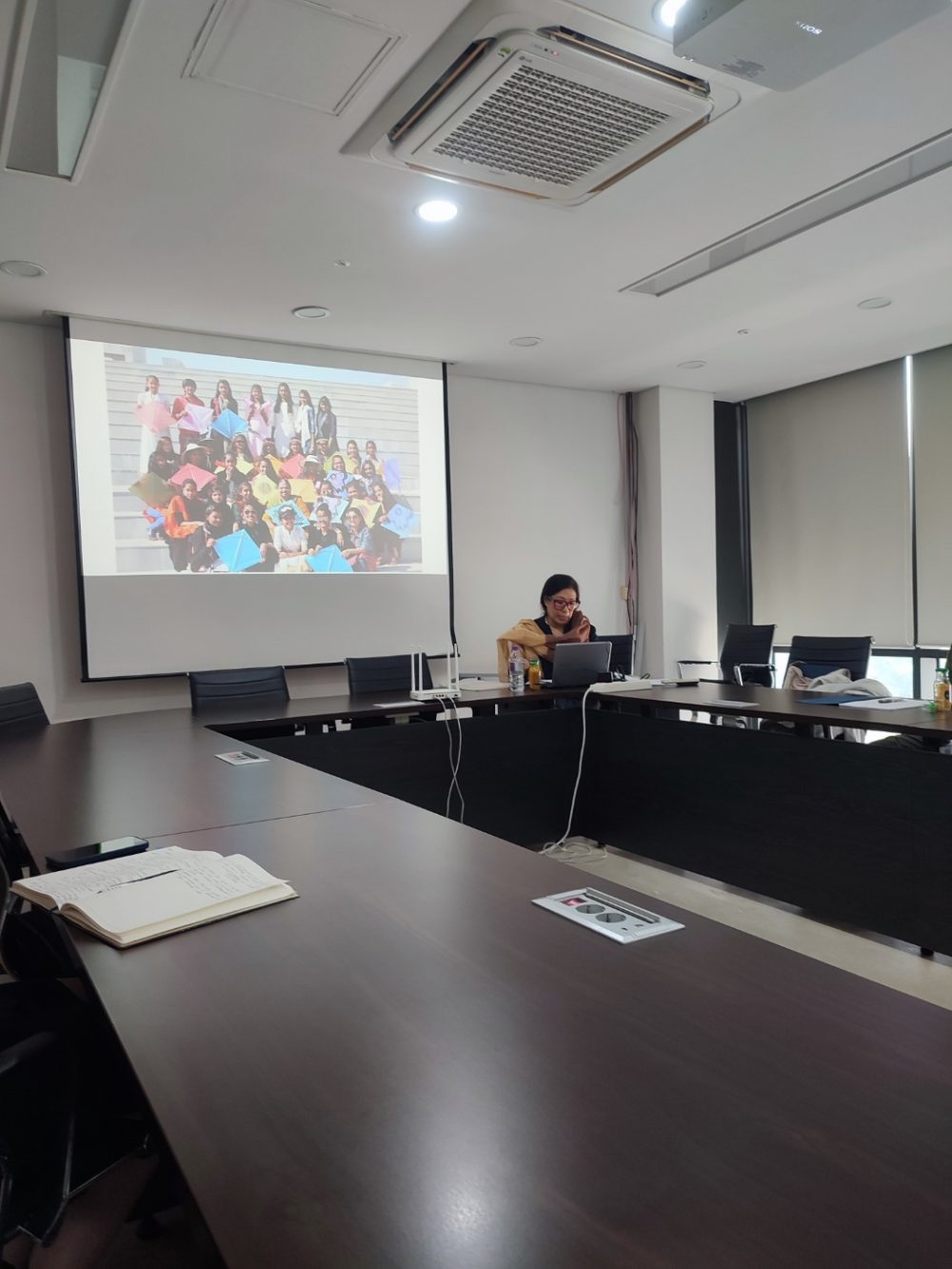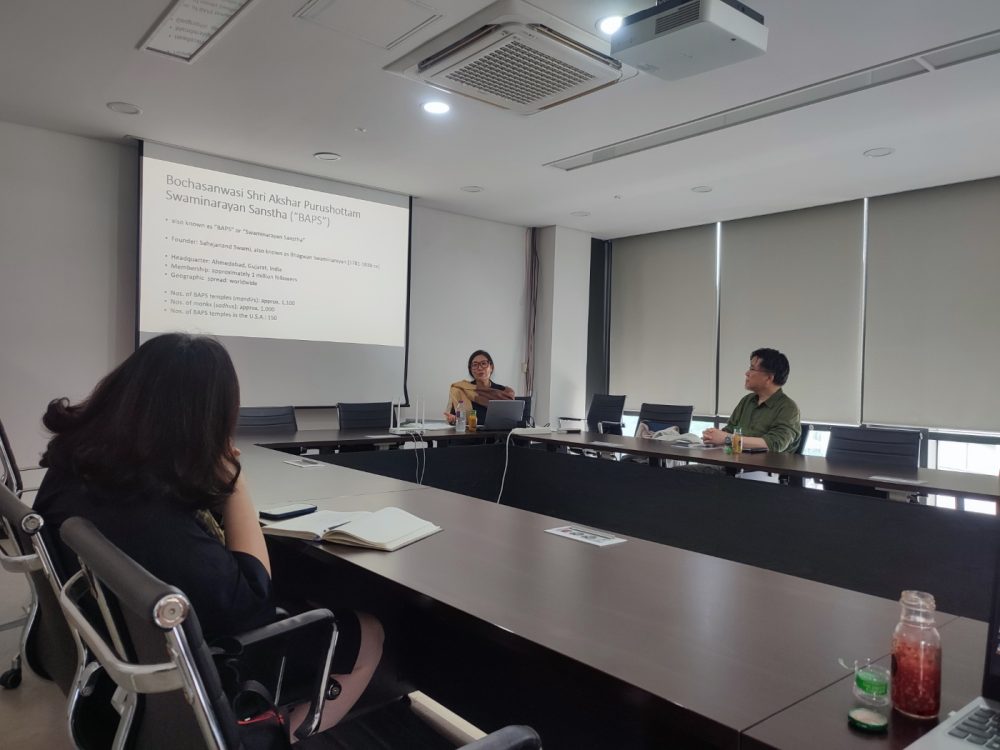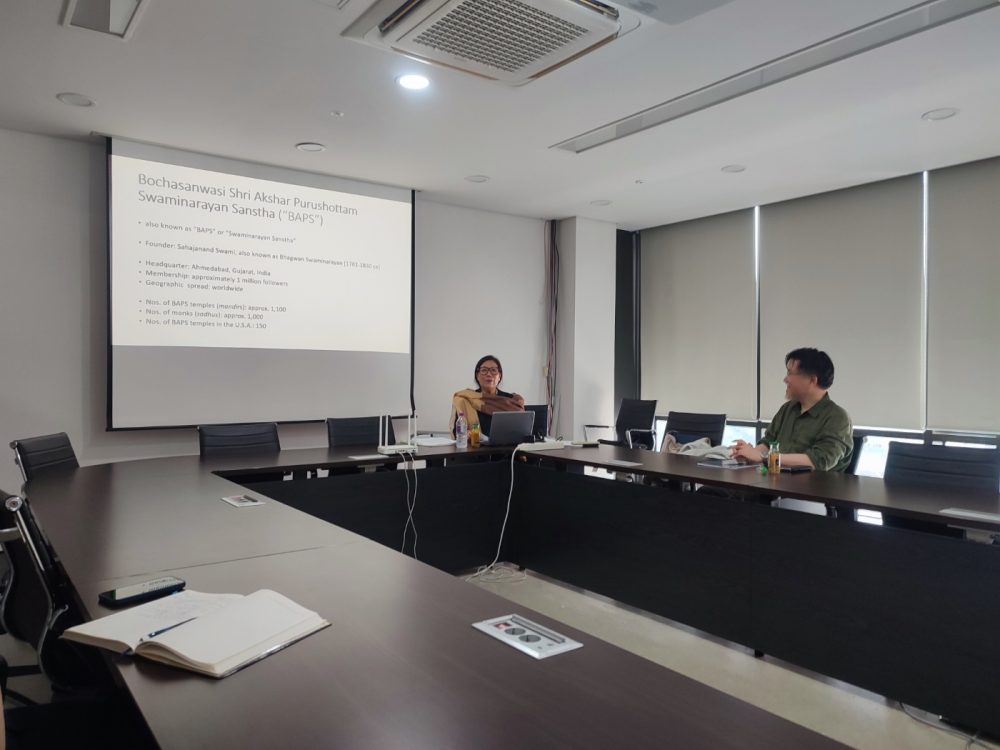
Throughout major cities of India, at the airport, along main roads, and many places between, there is a wide variety of large signs announcing India’s G20 presidency for 2023. For those needing a reminder, signs stating the G20 motto, “One Earth, One Family, One Future,” an expansive English translation of its Sanskrit antecedent, vasudhaiva kuṭumbakam (वसुधैव कुटुम्बकम्), are also everywhere. These repeated expressions of an India seeking recognition for its contribution to global economies and responsible development can prompt the usual questions of who and how are citizens benefitting from top-down economic initiatives. Drawing on recent fieldwork, I turn to the lives of young people who are living in the western Indian state of Gujarat. This presentation directs attention to the aspirations of young people and their experiencing of neoliberalism alongside the flourishing of contemporary bhakti (devotionalism) movements in India. The new economy needs efficient, self-motivated, and disciplined bodies and promises opportunities for those who acquire the right education and are able to train their self into an enterprising citizen. For youth in the Swaminarayan movement, there is a similar emphasis on the hard work of reshaping the self but this labour is toward a different ontological objective. I argue that looking at Swaminarayan youth projects in the context of aspirational and economic scripts offers insights into how successful religious movements bridge the mismatch between possibility and reality. The self’s purpose can be oriented toward attaining material success and serving the nation but these objectives are not secondary to cultivating specific kinds of relationships and connections that provide strategies for living in unsteady and often highly inequitable times. I conclude by suggesting that the Swaminarayan devotional tradition offers a means for the desiring self to live amidst changing political and economic conditions and this should complicate rather than simplify the relationship of neoliberalism to aspiration to religion.
Review
서울대 아시아연구소 남아시아센터는 뉴욕 아델피대학교 인류학과 한나 김 교수를 초청하여, 현대 인도의 종교운동에 대한 콜로키움을 개최하였다. 한나 김 교수는 YTK(Yuvati Talim Kendra)와 BAPS(Bochasanwasi Shri Akshar Purushottam Swaminarayan Sanstha)라는 두 종교단체를 중심으로 현대 인도 종교운동의 기능에 대해 설명하였다. 현대 인도의 젊은이들은 중산층이 되어야 한다는 성공의 압박에서 자유롭지 않다. 현대 인도의 종교운동은 이러한 중산층의 불안을 극복할 수 있도록 도와 주며, 신도들은 종교 활동을 통해 새로운 자유주의적 자아(Neo Liberal Self)를 형성하게 된다. 즉 종교운동은 경제적인 위치에서 기인하는 사상적 측면에서 자유로울 수 없는 것이다.





